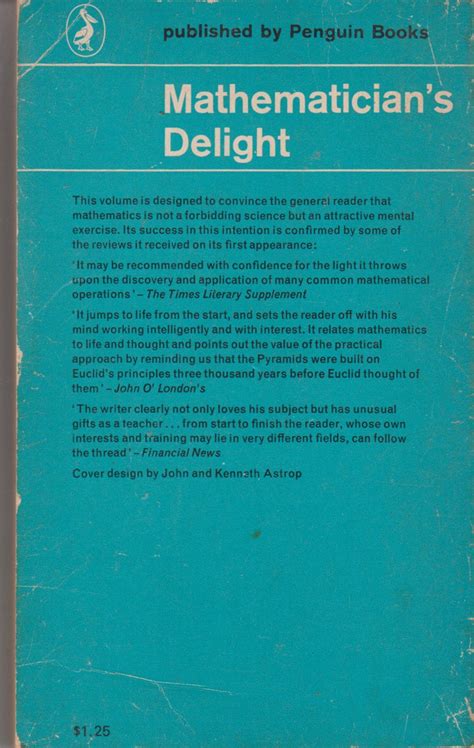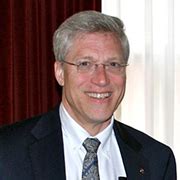A Quote by John Pople
I had changed from being a mathematician to a practicing scientist. I was increasingly embarassed that I could no longer follow some of the more modern branches of pure mathematics.
Related Quotes
It has been a fortunate fact in the modern history of physical science that the scientist constructing a new theoretical system has nearly always found that the mathematics. . . required. . . had already been worked out by pure mathematicians for their own amusement. . . . The moral for statesmen would seem to be that, for proper scientific "planning", pure mathematics should be endowed fifty years ahead of scientists.
I don't think that everyone should become a mathematician, but I do believe that many students don't give mathematics a real chance. I did poorly in math for a couple of years in middle school; I was just not interested in thinking about it. I can see that without being excited mathematics can look pointless and cold. The beauty of mathematics only shows itself to more patient followers.
I do not remember having felt, as a boy, any passion for mathematics, and such notions as I may have had of the career of a mathematician were far from noble. I thought of mathematics in terms of examinations and scholarships: I wanted to beat other boys, and this seemed to be the way in which I could do so most decisively.
No one really understood music unless he was a scientist, her father had declared, and not just a scientist, either, oh, no, only the real ones, the theoreticians, whose language was mathematics. She had not understood mathematics until he had explained to her that it was the symbolic language of relationships. "And relationships," he had told her, "contained the essential meaning of life."
It is a melancholy experience for a professional mathematician to find himself writing about mathematics. The function of a mathematician is to do something, to prove new theorems, to add to mathematics, and not to talk about what he or other mathematicians have done. Statesmen despise publicists, painters despise art-critics, and physiologists, physicists, or mathematicians have usually similar feelings: there is no scorn more profound, or on the whole more justifiable, than that of the men who make for the men who explain. Exposition, criticism, appreciation, is work for second-rate minds.
One of the high points of my life was when I suddenly realized that this dream I had in my late adolescence of combining pure mathematics, very pure mathematics with very hard things which had been long a nuisance to scientists and to engineers, that this combination was possible and I put together this new geometry of nature, the fractal geometry of nature.

































